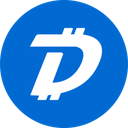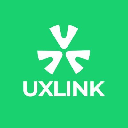-
 Bitcoin
Bitcoin $83,333.2617
0.07% -
 Ethereum
Ethereum $1,820.9206
0.04% -
 Tether USDt
Tether USDt $0.9995
-0.04% -
 XRP
XRP $2.0632
0.56% -
 BNB
BNB $593.8431
-0.09% -
 USDC
USDC $0.9999
-0.01% -
 Solana
Solana $116.9473
-1.86% -
 Dogecoin
Dogecoin $0.1628
-1.33% -
 Cardano
Cardano $0.6517
0.85% -
 TRON
TRON $0.2381
1.11% -
 Toncoin
Toncoin $3.5643
-7.90% -
 UNUS SED LEO
UNUS SED LEO $9.4410
0.56% -
 Chainlink
Chainlink $12.8995
-1.62% -
 Stellar
Stellar $0.2614
0.11% -
 Avalanche
Avalanche $18.2219
0.21% -
 Sui
Sui $2.2624
-4.19% -
 Shiba Inu
Shiba Inu $0.0...01220
-0.02% -
 Hedera
Hedera $0.1642
0.10% -
 Polkadot
Polkadot $4.0561
1.11% -
 Litecoin
Litecoin $83.3042
1.26% -
 MANTRA
MANTRA $6.4338
1.83% -
 Bitcoin Cash
Bitcoin Cash $301.5390
2.40% -
 Bitget Token
Bitget Token $4.5072
-0.54% -
 Dai
Dai $0.9999
0.02% -
 Ethena USDe
Ethena USDe $0.9995
-0.04% -
 Monero
Monero $215.9958
0.03% -
 Hyperliquid
Hyperliquid $11.8716
-2.66% -
 Pi
Pi $0.5718
-13.60% -
 Uniswap
Uniswap $5.8924
-0.38% -
 Aptos
Aptos $5.0504
-2.31%
The simplest explanation of blockchain
Blockchain presents a secure, transparent, and decentralized digital ledger system, immutably recording data through a network of nodes that collectively maintain its integrity.
Feb 04, 2025 at 01:25 am
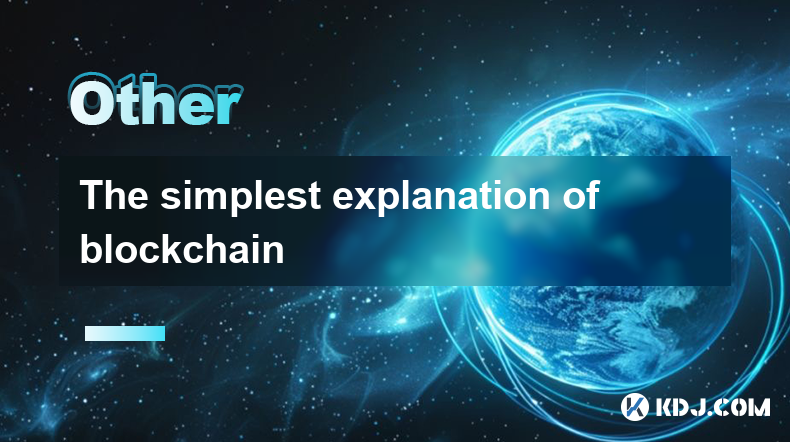
Key Points:
- Understanding the Concept of Blockchain
- Blockchain's Structure and Architecture
- Decentralization and Immutability
- Consensus Mechanisms
- Smart Contracts and Applications
- Benefits and Limitations of Blockchain
- Real-World Examples of Blockchain Applications
The Simplest Explanation of Blockchain
1. Understanding the Concept of Blockchain
A blockchain is a decentralized, distributed, and immutable digital ledger that facilitates the secure and transparent recording of transactions or data. It employs a peer-to-peer network, where each participant maintains a copy of the ledger, preventing any single entity from controlling or manipulating the data.
2. Blockchain's Structure and Architecture
A blockchain comprises blocks connected linearly and chronologically. Each block stores a timestamp, a hash of the previous block, a set of transactions, and other relevant data. Blockchains are characterized by:
- Linearity: Blocks are added sequentially, forming a linked chain.
- Immutability: Blocks are tamper-proof and immutable, ensuring data integrity.
- Transparency: All transactions are recorded publicly on the ledger.
3. Decentralization and Immutability
Blockchain's decentralized nature eliminates the need for a central authority. Instead, the network is maintained by a consensus mechanism, ensuring that all participants agree on the validity of transactions and blocks. Immutability protects stored data from unauthorized alterations, as modifications require the consensus of the entire network.
4. Consensus Mechanisms
Consensus mechanisms ensure the agreement among nodes on the validity of transactions and blocks. Notable mechanisms include:
- Proof of Work (PoW): Computationally intensive, securing the network through mining complexity.
- Proof of Stake (PoS): Validators are selected based on their stake in the network, reducing energy consumption.
- Directed Acyclic Graph (DAG): Transactions are arranged in a graph structure, enabling faster transaction processing.
5. Smart Contracts and Applications
Smart contracts are self-executing, programmable agreements stored on the blockchain. When predefined conditions are met, they automatically execute the agreed-upon actions, enhancing efficiency and trust. Blockchain applications include:
- Cryptocurrencies: Digital tokens used as a medium of exchange, such as Bitcoin and Ethereum.
- Decentralized Finance (DeFi): Blockchain-based financial services, including lending, borrowing, and trading.
- Supply Chain Management: Tracking goods, ensuring transparency and efficiency in the supply chain.
6. Benefits and Limitations of Blockchain
Benefits:
- Increased Security: Decentralization and immutability protect data from fraud and manipulation.
- Transparency: All transactions are publicly recorded, fostering accountability and trust.
- Cost Savings: Eliminating third parties reduces transaction costs and intermediaries.
Limitations:
- Scalability: Some blockchains struggle to process high transaction volumes.
- Speed: Transaction processing times can be slower than centralized systems.
- Complexity: Understanding blockchain technology requires technical knowledge.
7. Real-World Examples of Blockchain Applications
- Bitcoin: A decentralized digital currency, used for online transactions and payments.
- Ethereum: A blockchain platform for developing and executing smart contracts, enabling decentralized applications and services.
- Supply Chain Management: Tracking the movement of goods, reducing fraud, and enhancing traceability.
FAQs:
What is the difference between a blockchain and a database?
A blockchain is a decentralized, immutable, and transparent digital ledger, while a database is a centralized, controlled, and potentially modifiable collection of data.
Is blockchain truly secure?
Blockchain's decentralization and consensus mechanisms make it highly resistant to hacking and unauthorized modifications. However, vulnerabilities in specific implementations or smart contracts could introduce security risks.
What are the potential risks associated with blockchain?
Despite blockchain's security features, potential risks include scalability limitations, the complexity of managing and storing data, and the susceptibility of smart contracts to bugs and exploits.
What types of businesses can benefit from blockchain technology?
Industries that require transparency, security, and efficiency can leverage blockchain, such as finance, supply chain management, healthcare, and voting systems.
What are the challenges facing blockchain adoption?
Blockchain adoption faces challenges in scalability, regulatory compliance, interoperability between different platforms, and user education.
Disclaimer:info@kdj.com
The information provided is not trading advice. kdj.com does not assume any responsibility for any investments made based on the information provided in this article. Cryptocurrencies are highly volatile and it is highly recommended that you invest with caution after thorough research!
If you believe that the content used on this website infringes your copyright, please contact us immediately (info@kdj.com) and we will delete it promptly.
- Gold Dips from Record High as Market Turmoil Sparks Profit-Taking
- 2025-04-04 08:35:12
- Factors such as whale accumulation, bullish technical indicators, and market sentiment have contributed to this optimistic outlook.
- 2025-04-04 08:35:12
- With the crypto market entering a new growth cycle in 2025
- 2025-04-04 08:30:11
- EOS Price Defies the Market Crash: +46% in a Week!
- 2025-04-04 08:30:11
- BlockDAG (BDAG) Breaks Records With 2,380% Presale Price Jump, Outpacing Dogecoin (DOGE) and Kaspa (KAS)
- 2025-04-04 08:25:12
- Economic uncertainty and a major crypto exchange hack pushed down the total value locked in DeFi protocols to $156 billion in the first quarter of 2025
- 2025-04-04 08:25:12
Related knowledge

What are the future development trends of blockchain game development?
Apr 03,2025 at 05:00am
Blockchain technology has revolutionized various industries, and gaming is no exception. As we look to the future, several trends are set to shape the development of blockchain games. These trends not only promise to enhance the gaming experience but also to integrate blockchain technology more seamlessly into the gaming ecosystem. Let's explore these t...

What are the maintenance costs of blockchain system development?
Apr 03,2025 at 06:07pm
The maintenance costs of blockchain system development are multifaceted and depend on various factors. These costs can include technical maintenance, security updates, infrastructure expenses, and personnel costs. Understanding these elements is crucial for anyone planning to develop or maintain a blockchain system. Technical MaintenanceTechnical mainte...
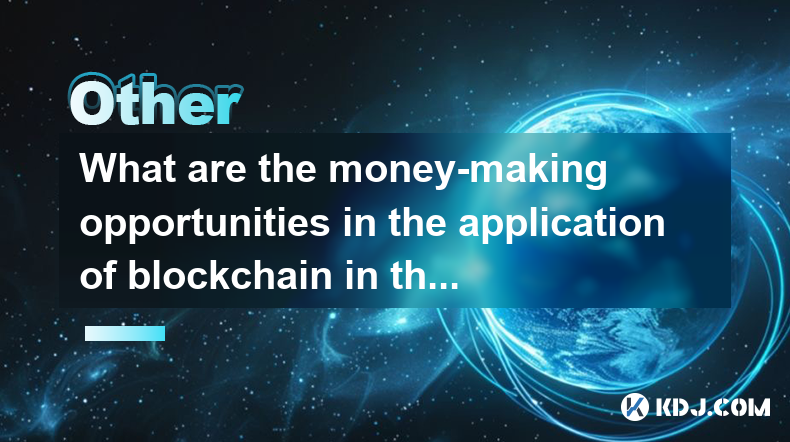
What are the money-making opportunities in the application of blockchain in the medical industry?
Apr 03,2025 at 03:35am
The integration of blockchain technology into the medical industry presents a myriad of money-making opportunities that can revolutionize healthcare systems. Blockchain's inherent characteristics, such as transparency, security, and immutability, make it an ideal solution for various medical applications. By leveraging blockchain, companies can develop ...
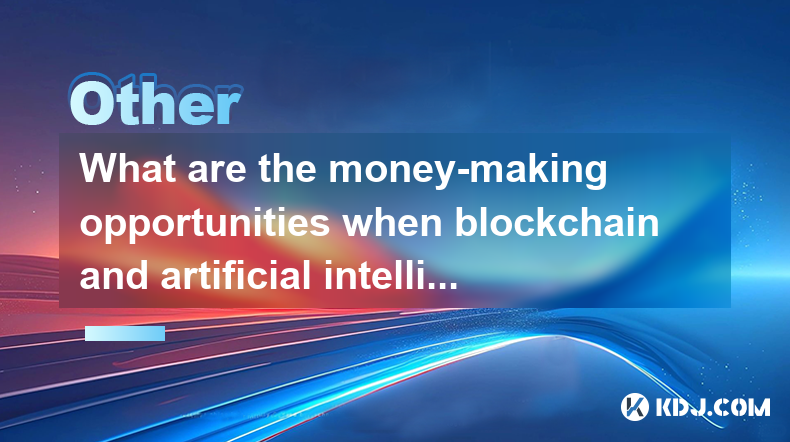
What are the money-making opportunities when blockchain and artificial intelligence are combined?
Apr 04,2025 at 01:28am
The convergence of blockchain and artificial intelligence (AI) presents a myriad of money-making opportunities within the cryptocurrency circle. This fusion leverages the decentralized and secure nature of blockchain with the analytical prowess of AI, creating innovative solutions and platforms that can generate significant revenue. From enhancing tradi...
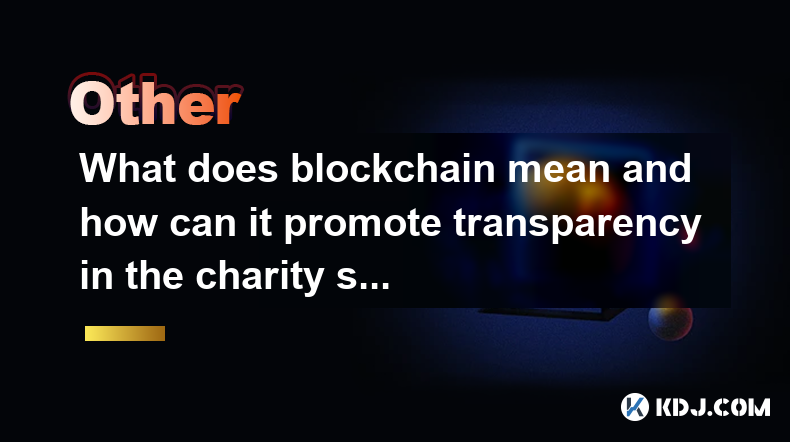
What does blockchain mean and how can it promote transparency in the charity sector?
Apr 03,2025 at 08:29pm
Blockchain technology is a decentralized, distributed ledger that records transactions across numerous computers. This ensures that the data is transparent and nearly impossible to alter retroactively. Essentially, blockchain serves as a digital ledger of all cryptocurrency transactions, enabling secure and direct exchanges without the need for intermed...
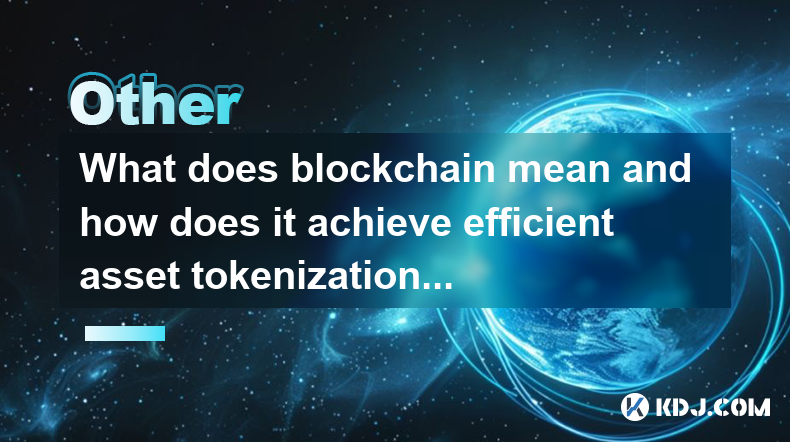
What does blockchain mean and how does it achieve efficient asset tokenization?
Apr 03,2025 at 07:57pm
Blockchain technology is a decentralized, distributed ledger that records transactions across numerous computers. It ensures that each transaction is secure, transparent, and immutable. The concept of blockchain was introduced with the launch of Bitcoin in 2009, but its applications have since expanded far beyond cryptocurrencies. At its core, blockchai...

What are the future development trends of blockchain game development?
Apr 03,2025 at 05:00am
Blockchain technology has revolutionized various industries, and gaming is no exception. As we look to the future, several trends are set to shape the development of blockchain games. These trends not only promise to enhance the gaming experience but also to integrate blockchain technology more seamlessly into the gaming ecosystem. Let's explore these t...

What are the maintenance costs of blockchain system development?
Apr 03,2025 at 06:07pm
The maintenance costs of blockchain system development are multifaceted and depend on various factors. These costs can include technical maintenance, security updates, infrastructure expenses, and personnel costs. Understanding these elements is crucial for anyone planning to develop or maintain a blockchain system. Technical MaintenanceTechnical mainte...

What are the money-making opportunities in the application of blockchain in the medical industry?
Apr 03,2025 at 03:35am
The integration of blockchain technology into the medical industry presents a myriad of money-making opportunities that can revolutionize healthcare systems. Blockchain's inherent characteristics, such as transparency, security, and immutability, make it an ideal solution for various medical applications. By leveraging blockchain, companies can develop ...

What are the money-making opportunities when blockchain and artificial intelligence are combined?
Apr 04,2025 at 01:28am
The convergence of blockchain and artificial intelligence (AI) presents a myriad of money-making opportunities within the cryptocurrency circle. This fusion leverages the decentralized and secure nature of blockchain with the analytical prowess of AI, creating innovative solutions and platforms that can generate significant revenue. From enhancing tradi...

What does blockchain mean and how can it promote transparency in the charity sector?
Apr 03,2025 at 08:29pm
Blockchain technology is a decentralized, distributed ledger that records transactions across numerous computers. This ensures that the data is transparent and nearly impossible to alter retroactively. Essentially, blockchain serves as a digital ledger of all cryptocurrency transactions, enabling secure and direct exchanges without the need for intermed...

What does blockchain mean and how does it achieve efficient asset tokenization?
Apr 03,2025 at 07:57pm
Blockchain technology is a decentralized, distributed ledger that records transactions across numerous computers. It ensures that each transaction is secure, transparent, and immutable. The concept of blockchain was introduced with the launch of Bitcoin in 2009, but its applications have since expanded far beyond cryptocurrencies. At its core, blockchai...
See all articles


















































































